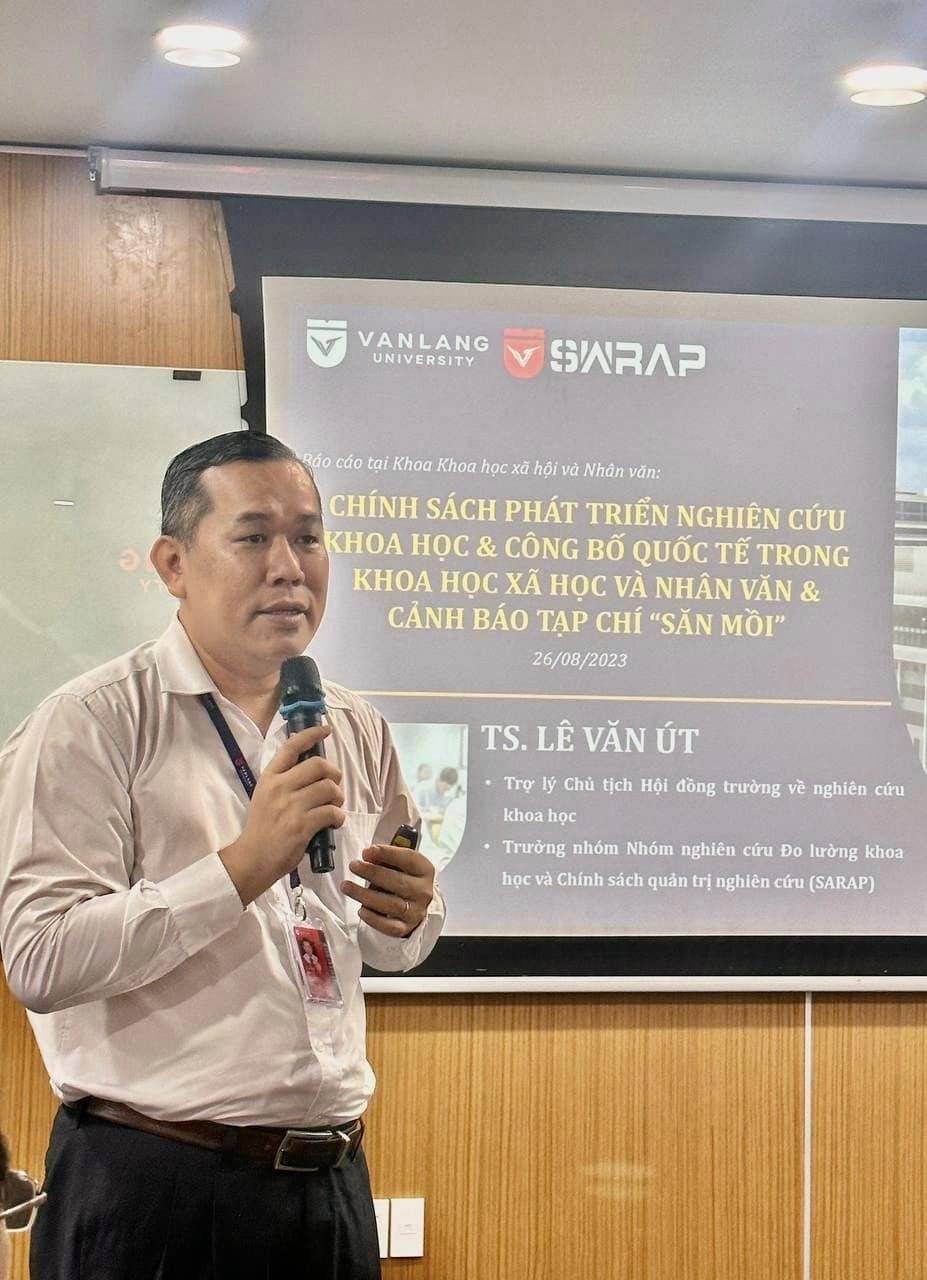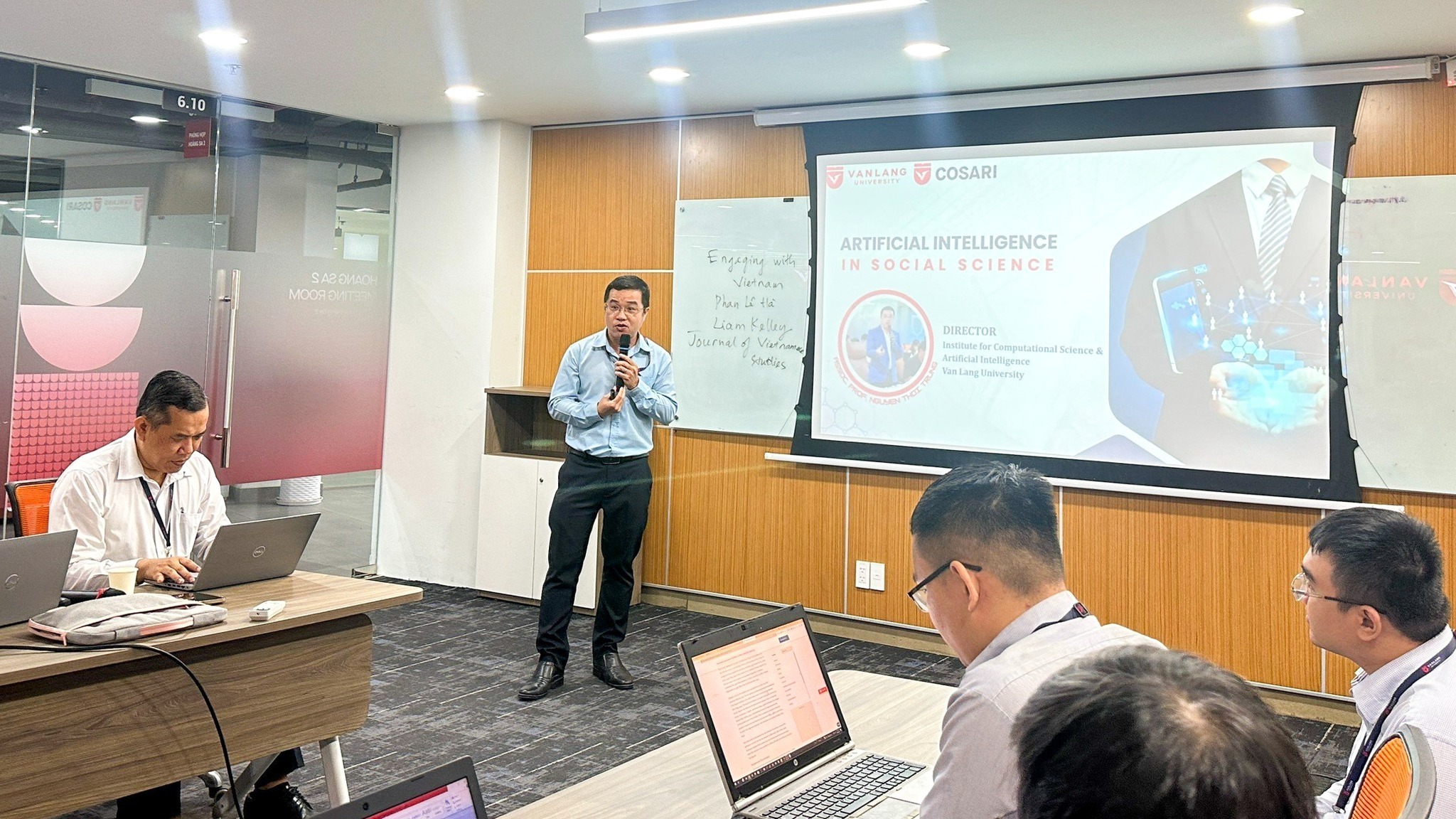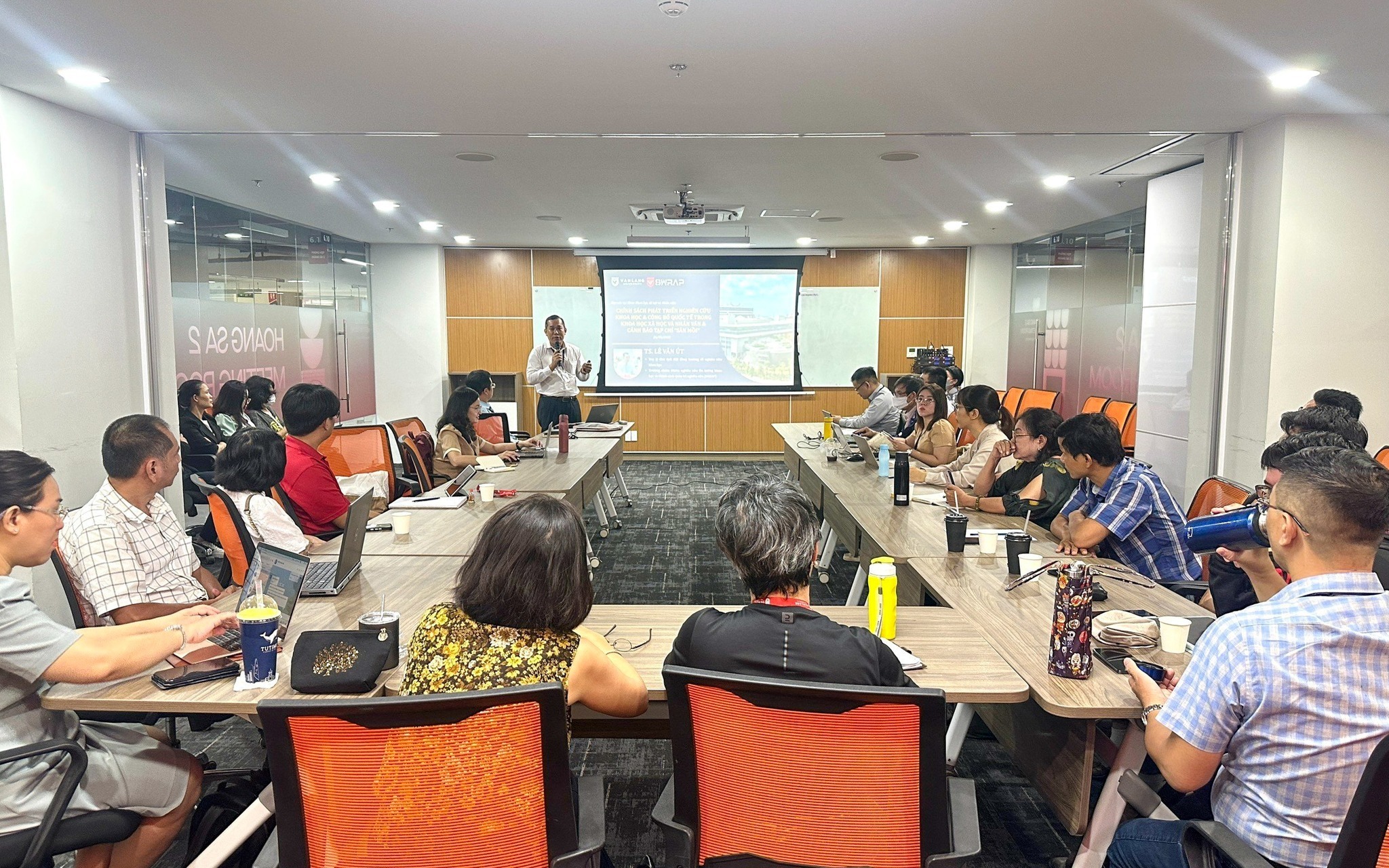
26/08/2023: Research development at Van Lang University for the Faculty of Social Sciences and Humanities
SARAP
On August 26, 2023, the Faculty of Social Sciences and Humanities at Van Lang University organized the workshop entitled "Application of artificial intelligence in the field of social sciences and humanities & warning about suspicious journals". The workshop attracted active participation and discussions from the faculty members of the Faculty of Social Sciences and Humanities, the Faculty of Architecture, and the Southern Institute of Social Sciences.
Peer-reviewed publications in the field of social sciences and humanities in Vietnam have been considered to have their own "peculiarities" for many years, being described as "difficult to publish" or "not internationally suitable." With the vision for 2030, Van Lang University has identified the goal of "strengthening collaborative programs in education and research with leading universities worldwide." This underscores the university's commitment to enhancing research capabilities in the social sciences and humanities field.
At the beginning of the workshop, Dr. Nguyen Bao Thanh Nghi, Dean of the Faculty of Social Sciences and Humanities, raised critical and contemporary issues in the realm of social science and humanities research. These issues included the limited number of publications from Vietnam, challenges posed by digital transformation, Industry 4.0, and the impact of artificial intelligence on various aspects of life and society.
The main speakers of the workshop was Dr. Ut V. Le, Assistant to the Chairman of the University Board for Research Affairs and also the Head of The Research Group of Scientometrics and Research Administration Policies (SARAP), and Associate Professor Dr. Nguyen Thoi Trung, Director of the Institute of Computational Science and Artificial Intelligence (COSARI).

Associate Professor Dr. Nguyen Thoi Trung introduced the principles of artificial intelligence, its historical development, and the reasons for the rapid growth of AI over the past 15 years. The participants in the workshop also learned to differentiate between artificial intelligence (AI), machine learning, and deep learning. Particularly, Associate Professor Dr. Nguyen Thoi Trung highlighted the capabilities of AI in constructing large data analysis models and making accurate predictions.

In response to a question from the participants about the current applications of AI to support practical survey activities, such as questionnaire construction, data collection, and evaluation, Associate Professor Dr. Nguyen Thoi Trung provided a comprehensive explanation regarding data collection, the legal aspects of these activities, and reiterated general principles of machine learning concerning input and output data.
Regarding research policy, Dr. Ut V. Le emphasized: "Policies are like a road; even if you have good personnel and excellent researchers, without policies to pave the way, researchers will find it challenging to fully utilize their potential". Dr. Ut V. Le also presented an overview of the research development policies of Van Lang University and briefly discussed the peer-reviewed publication status in the field of social sciences and humanities by Vietnamese authors. Most importantly, the seminar introduced participants to a ranking of reputable publishers and journals and provided guidance on how to identify predatory journals that have not been peer-reviewed professionally.

In response to the participants' inquiries about the journals of the MDPI publisher, Dr. Ut V. Le provided a reasoned answer. Although MDPI is registered in Switzerland, a significant portion of its operational staff comes from China. Many reputable scholars around the world have also expressed doubts about the integrity of the journals in this database. Dr. Ut V. Le emphasized that predatory journals, which have not been peer-reviewed professionally, exhibit several signs that can be used for identification: the credibility of the editorial team, the time taken for editorial and publication processes, and high fees required for article approval. He underlined that it is the responsibility of researchers to recognize these signs and avoid submitting their scientific work to such journals. Predatory journals are not only a concern for the research community in Vietnam but a pressing issue worldwide.
(Source: Department of Admissions and Communication, Van Lang University)